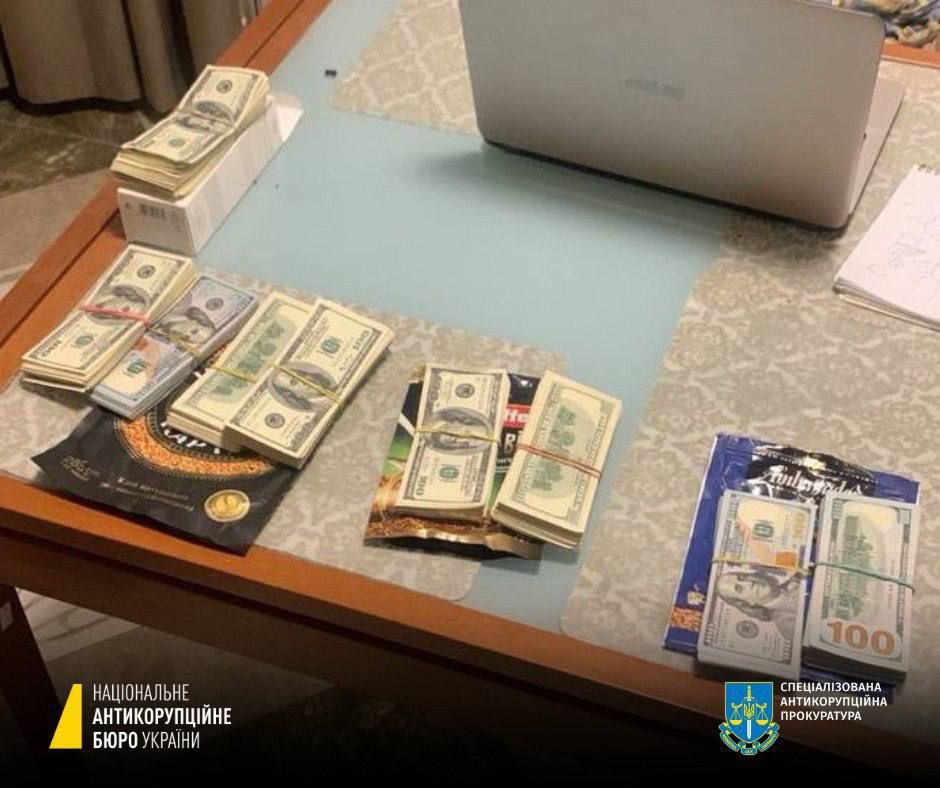

Author: Oksana Kopiichuk, Legal Advisor, Transparency International Ukraine
Andrii Tkachuk, HACC Case Monitoring Lawyer at Transparency International Ukraine.
The NABU and the SAPO exposed four judges of the Kyiv Court of Appeal: Viacheslav Dziubin, Ihor Palenyk, Viktor Hlynianyi, and Yurii Slyva. They are all suspected of receiving a bribe totaling USD 35,000.
The investigation believes that these judges created a criminal scheme to sell “decisions” for bribes. They were caught lifting the seizure of a plane illegally. Find out the details in our material.
How did the bribery scheme function?
This November, Tetiana Polishchuk, the representative of Constanta Airline PJSC, made a deal with Viacheslav Dziubin, the judge of the Kyiv Court of Appeal, to lift the arrest of two unique An-74TK-100 aircraft, which are capable of transforming from cargo to passenger and vice versa.
These aircraft were material evidence in criminal proceedings for obstruction to the legitimate activities of the Armed Forces of Ukraine. They are owned by the Estonian company EKA GRUPP OU, and the holders in Ukraine were Motor Sich JSC and Constanta Airline.
For this “service,” Polishchuk offered USD 35,000 to Dziubin and his three colleagues. The judge planned to keep USD 5,000 as a mediator and to divide the rest among the judges of the panel: USD 10,000 each.
Subsequently, according to the investigation, Palenyk, Hlynianyi, and Slyva, who were to hear the case in the appellate instance, gave their consent to Dziubin. However, as it turned out later, he had no intention of giving them USD 30,000. Dziubin estimated his “mediation” at USD 10,000 and gave USD 25,000 to his colleagues.
Finally, in late November, the panel of judges lifted the arrest of one of the planes, and Dziubin received USD 35,000 from Tetiana Polishchuk in a car. The money was divided, but the next day, law enforcement officers detained all four judges involved and searched their homes.
For this “service,” Polishchuk offered USD 35,000 to Dziubin and three other colleagues. The judge planned to keep USD 5,000 as a mediator and to divide the rest among the judges of the panel: USD 10,000 each.
How was the bribe split?
Detectives recorded the further path of the bribe. Dziubin kept his share in the office.
The judge put the rest of the money, namely USD 25,000, in a whiskey box and brought it to Palenyk’s office, where they had a short dialogue. Dziubin, “This is cognac, cognac. Not cognac, but whiskey, just the way you like.” Palenyk at that moment put the box under the table, and Dziubin added, “Drink to my health.”
Next, Judge Palenyk replaced the bills with his own to give USD 8,300 to Hlynianyi and Slyva, and then packaged them in a coffee bag and an Internet provider’s advertising package.
When splitting the “reward,” he applied his “best” acting skills. Giving the bribe to Hlynianyi in an advertising bag, Palenyk remarked, “Read this advertisement; they offer quality Internet.”
Palenyk had a very strange relationship with coffee; he gave part of the bribe to Judge Slyva in a coffee bag saying, “Take the coffee, coffee, you treated me once; it’s instant; they say it’s good.” At his place of residence, in addition to the bribe itself, USD 115,000 and EUR 410 were found, packaged in coffee bags, and seized.
Who helped expose the four judges? There is a version that the exposure of the scheme was facilitated by Tetiana Polishchuk, who allegedly cooperated with law enforcement officers to document the case in detail and record the fact of transferring a bribe.
The defense insisted that Polishchuk was a lawyer whom law enforcement could not involve for confidential cooperation. However, they got this information from the register, so it is possible that her first and last name could have been changed for security reasons. At the moment, there is no information about a suspicion notice served to her.
The defense continued to insist that their clients, all four judges, were provoked.
Judge Palenyk replaced the bills with his own to give USD 8,300 each to Hlynianyi and Slyva, and then packaged them in a coffee bag and an Internet provider's advertising package.
What are the judges in for?
Law enforcement officers served the four judges involved with suspicion notices of “accepting an improper advantage in a particularly large amount committed by an organised group” (Art. 28, part 3, Art. 368, part 4 of the Criminal Code of Ukraine).
Dziubin, Palenyk, Hlynianyi, and Slyva face from 8 to 12 years in prison with confiscation of property and deprivation of the right to hold certain positions for up to 3 years.
On December 4, the High Council of Justice lifted the immunity of judges, allowing to take them into custody. The HACC arrested the suspects in the courtroom; bail was imposed as an alternative: UAH 4 mln to Palenyk, UAH 2.5 mln to Slyva, and UAH 5 mln to Hlynianyi. The two latter took advantage of this opportunity and are already out the pre-trial detention center, having paid their bail, and they were also suspended from justice for 2 months.
The “mediator” Dziubin has not yet been given an interim measure since, having been served with a suspicion notice, he was immediately taken to the hospital. The investigating judge decided to allow his remote participation in the court hearing scheduled for December 18.
By the way, the decisions on the suspects’ interim measures are currently classified. Therefore, we don’t know the details, but TI Ukraine continues to monitor this case.
Dziubin, Palenyk, Hlynianyi, and Slyva face from 8 to 12 years in prison with confiscation of property and deprivation of the right to hold certain positions for up to 3 years.







